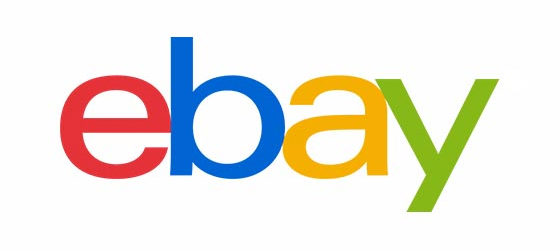Step 3
Decide Where to Sell
Your choice of an online marketplace can make or break your career as a seller. The right sales venue can ensure a large consumer base and high profits. But choosing the wrong sales venue can consume your profits and undermine your business.
Most sellers learn the realities of online marketplaces the hard way by selling blind and losing money. It is easy to waste hundreds of dollars and vast amounts of time learning the ins and outs of online marketplaces.
To help you through this process, we've prepared a brief overview of the popular marketplaces and their pros and cons.

How Online Marketplaces Make Money
Before we begin, I'll explain a basic reality of online marketplaces that many sellers don't seem to grasp. Marketplaces, such as eBay and Amazon.com, make money by charging fees to sellers..
These venues make a profit every time you sell something, and they make money whether you make a profit or not. This is why such venues are constantly pushing you to sell for the lowest price possible. They know that they will earn a fee, usually 10% of the price, from every transaction. Always keep this in mind when you see a suggested price or a feature that allows you to match the lowest price.
You should always add this fee to your other operating expenses when you calculate your profit margin. That way you can see if you are making money or not.
Pros and Cons of Popular Online Marketplaces
- eBay

eBay is the easiest marketplace for beginners to try their hand in. This eCommerce platform is a great learning tool because selling on eBay can teach you the realities of online retail.
eBay Advantages
- eBay is extremely flexible. It gives you a great deal of control over listings, and it gives you the ability to put a lot of information in your listings.
- eBay gets a lot of traffic. This means that more eyes will be landing on your product listing.
- The detailed information on eBay makes it a great venue for niche marketers. Many hobbyists, collectors, and dealers first turn to eBay when looking for purchases.
- eBay gives you two selling options: fixed price and auction. Generally, fixed price listings are better for retail products, and auctions are best for collectors' items or used products.
- eBay offers flexible pricing. Unlike Amazon, it allows you to take bids and price offers from customers even on fixed price listings. It allows you to set a minimum price to reject "lowball" offers.
- Payment is simple on eBay due to the ease of using PayPal. This means you can get the money fast and spend it quickly.
- Shipping is easy on eBay.
- eBay shippers get a discount when they use certain services, such as the United States Postal Service.
eBay Disadvantages
- eBay is extremely competitive; you will be competing against thousands, tens of thousands, and possibly millions of people all over the world.
- The highly competitive nature of eBay creates a race to the bottom in terms of pricing. eBay is effectively a wholesale market, which means prices are far below retail.
- You will have to do almost everything yourself on eBay. Writing the listing and monitoring auctions will take up a great deal of your time.
- eBay sellers have to store, pack, and ship products themselves, which can also take up a lot of time.
- You have to resolve all customer service issues, such as returns, which can take time and effort.
- Unless you sign up for a premium account, you will have to pay for most of your listings on eBay. A premium account will cost about $60 a month minimum.
- eBay charges a 10% fee on every transaction on top of your other operating expenses, such as shipping and product costs.
- Many people consider eBay second tier and will not deal with it.
For an in-depth look at the pros and cons of eBay, read - Ask an expert: Is it worth opening an eBay store?
- Amazon.com

Amazon is the world's largest online marketplace. Unlike eBay, Amazon.com is basically a retail marketplace, which means it sells to a mass market. In essence, Amazon.com is a better venue for the sale of mass market goods.
Amazon.com Advantages
- Listings on Amazon.com are free as long as you do not take advantage of special programs, such as Fulfillment by Amazon.
- There is no time limit for Amazon.com listings; they can stay up forever, which means less hassle for sellers.
- As with eBay, Amazon.com gets a lot of traffic. So you can expect to sell more products, faster, than you would on your own website.
- Amazon.com does almost everything for you. Unless you're selling a used item, you will not need to create a listing. All you have to do is list and ship.
- Amazon.com gives you the option of sending items to Fulfillment by Amazon (FBA). In the FBA program, Amazon.com handles all the shipping and customer service chores for you.
- Amazon.com clearly reveals the fees it charges, which makes it easier to determine your profit margin.
- Programs such as Amazon Prime can greatly extend your customer base.
- Amazon.com has a much better reputation than eBay. There are many people who will buy from Amazon.com, but not from eBay.
- Amazon.com offers free shipping on orders over $35.
- Sellers can accumulate free shipping credits on Amazon.
Amazon.com Disadvantages
- Prices at Amazon.com are fixed. You cannot accept offers from buyers, and you can only list one price at a time. This can make it harder to sell certain goods.
- Like eBay, Amazon.com is highly competitive. At Amazon.com, you will be competing with many major retailers, suppliers, wholesalers, and manufacturers with far greater resources.
- Amazon.com is also a retailer that markets merchandise in direct competition with sellers, such as you, often at discount prices.
- Unless you use FBA, shipping through Amazon.com can be cumbersome and expensive. You are also limited to Amazon's trusted shippers, usually US Postal Service.
- The amount of information you can add to Amazon.com listings is limited. This can make it a difficult place to sell niche products.
- Amazon.com does not make instant payment. Instead, it keeps the money in a sort of escrow account to cover operating expenses, such as returns, and pays every two weeks.
Looking for more reasons to love Amazon? Check out - Why You Should Sell on Amazon.com
Other Online Marketplaces
Contrary to popular belief, eBay and Amazon.com are not the only trusted online marketplaces. They are merely the biggest and the best known.
Some other marketplaces you might consider are as follows:
-
Ruby Lane – This site specializes in high-end used items, usually antiques and collectibles. The site caters to collectors and dealers. Prices are fixed, and the number of items is limited. You should only use Ruby Lane if you are selling collectibles. Interested in learning more? Check out our review of Ruby Lane.
-
Bonanza – This is a retail site dedicated to higher-end products, such as jewelry and fashion. Like Ruby Lane, Bonanza is geared toward professional retailers and established merchants who want to set up online shops. Click here to review our ten reasons why you should use Bonzana.
These smaller marketplaces have lower search engine rankings, which means products sold through them may not show up in Google or Bing searches. Many customers are simply not aware of these marketplaces, so they will not do business with them.
Even in this day and age, a lot of people only go to Amazon.com or eBay for online shopping.
Selling on Your Own Website
If you are serious about online retail and want to make real money, you'll have to create your own online store at some point. There simply is no way to earn a decent profit from volume sales without your own site. Creating your own site gives you more control over prices and reduces competition. You won't be competing with tens of thousands of other sellers like you will on Amazon.com and eBay.
Creating your own website is a lot of extra work, but it can be worth it, especially if you want more control over pricing and an alternative to the brutal competition on eBay and Amazon.com.
My recommendation is that you gain some experience by selling through Amazon.com or eBay before opening a store. eBay and Amazon.com are tough markets, but they're also great learning experiences that will teach you the basics of selling.
You will need these basic skills before you can master the fourth step in our series!
Next step








